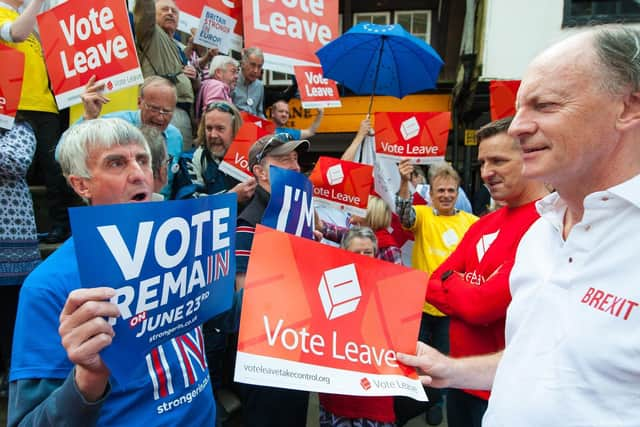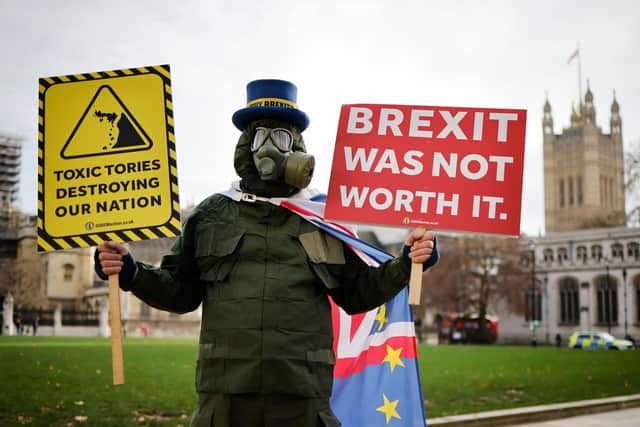EU referendum was 'never really about Brexit' says Leeds academic who has written book on how to avoid arguments about the topic
and live on Freeview channel 276
The lecturer in Political Communication has been researching the reasons why so many discussions around the UK's decision to leave the EU in 2016 so often escalates into arguments for a new book, in which he argues that there are deeper, personal circumstances which explain why different people voted the way they did.
Advertisement
Hide AdAdvertisement
Hide AdProf Coleman conducted 80 in-depth interviews with people of different ages, backgrounds and varying involvement in politics – from elected MPs to those who admitted to shying away from political discussions around the dinner table – for his book, entitled How People Talk About Politics, Brexit & Beyond.


What he found, he claims, is that people's reasons for voting either Leave or Remain, and the ways in which they communicated with others about the issue, were often embedded in factors such as their relationships with family, self-confidence and the community they live in.
"There's a real link between people's personal lives and their political lives," he said.
"People play out in politics what is happening at home. If they feel that they're being disrespected by people or not listened to, Brexit suddenly becomes an issue of respect and disconnection."
Advertisement
Hide AdAdvertisement
Hide AdAmong those interviewed were a 43-year-old palliative care nurse who rowed with younger colleagues after saying she voted to leave, and a pro-EU young woman whose Eurosceptic stepfather insulted her and her friends at her birthday party shortly after the referendum.


He also spoke to an elected Conservative MP who voted to remain and children who were too young to vote.
"One guy I spoke to was so angry with his parents who voted leave that he ended up not speaking to them for several months," he added.
"Another woman who worked in an office and had kept quiet about voting leave and felt upset by a younger male graduate who - she thought - thought he was better then her. When she told him she had voted to leave, he laughed, and that really was what led to an argument."
Advertisement
Hide AdAdvertisement
Hide AdProf Coleman said arguments could be avoided between friends, family and colleagues by simply "listening" to one another and trying to understand the personal reasons why someone may have voted the way they did.


"Very often, these things come back to little things that happened as a child. People I spoke to would talk about arguments they had had and make comments such as, 'but he has always thought he is better than me'."
The academic added some people he had spoken to had had racist views, and that "what they are really saying is that 'nobody cares about me'".
"People were badly served by figures like Farage," he added.
Advertisement
Hide AdAdvertisement
Hide Ad"Some campaigners were playing into people's insecurities in order to achieve what they thought was best for them, not necessarily the people they were speaking to.
"I don't think we'll be able to move forward politically without these people, though. They highlight divisions which are symptoms of deeper things going on in society."